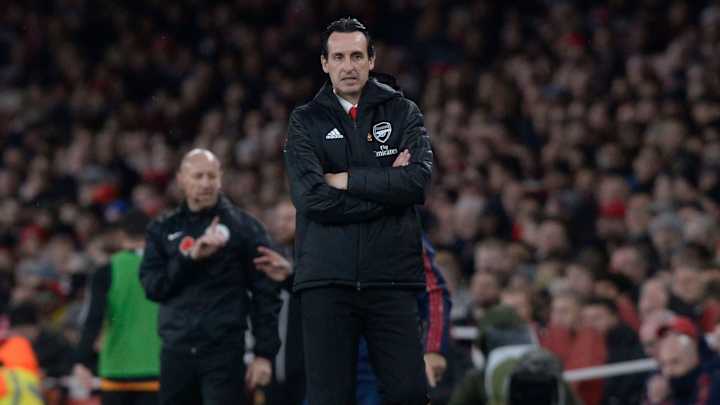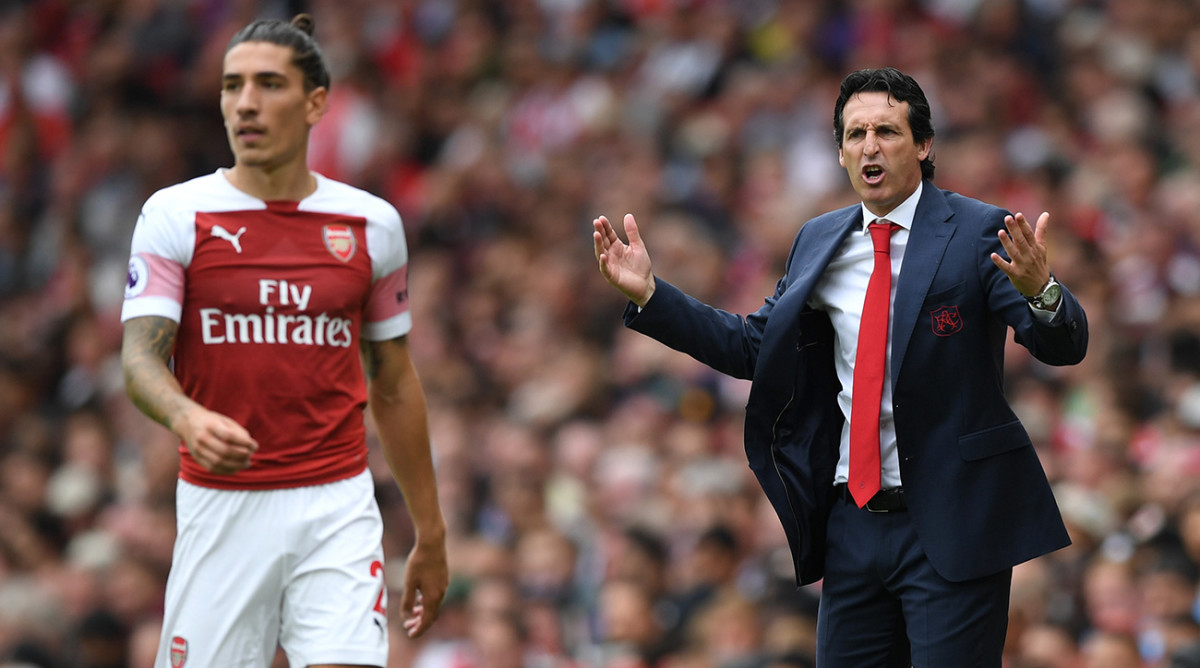Unai Emery Readies for Crunch Time Period as Arsenal's Post-Wenger Era Drifts On


Blame in such circumstances rarely lies in one place and one place alone, but the first person to pay the price is nearly always the manager. As Arsenal’s post-Wenger drift goes on – down to sixth and without a win in the league since the beginning of October – the sense is that Unai Emery is approaching a crucial period.
Arsenal’s next four league games are against Southampton, Norwich, Brighton and West Ham. The club hierarchy continues to brief that Emery still enjoys the faith of the director of football Raul Sanllehi and the technical director Edu but unless this next month brings significant improvement and enhances Arsenal’s hopes of Champions League qualification, the likelihood is a new manager will be brought in before the January transfer window. The plan that was brought in for running the club after Arsene Wenger’s retirement in 2018 already lies in tatters.
As Manchester United is also proving, replacing a long-term manager is far from straightforward, particularly when that manager was so much more than just a coach. That’s why Arsenal implemented a new structure, with Ivan Gazidis as CEO, working with Sven Mislintat and Sanllehi. But Gazidis was tempted away by AC Milan while Mislintat quit, seemingly following a difference of opinion with Sanllehi.
Emery’s appointment made at least superficial sense, given the succeed he had had with limited funds at Valencia and Sevilla. But quarter of the way through his second season, it’s very hard to see what Emery is trying to do. Players have admitted to confusion, and anybody who has attended an Emery press conference will be familiar with the feeling. In some ways, it’s admirable that he insists on speaking English, but the problem is that Emery’s English still doesn’t make much sense. If he struggles similarly to convey his meaning in the dressing-room, it’s perhaps not surprising that Arsenal is so frequently shambolic. Certainly there seems never to be any sort of consistency of approach. It’s notable that Emery’s two previous stints outside Spain –¬ at Spartak Moscow and Paris Saint-Germain – have both ended in frustration.
In part, Emery is hamstrung by a weirdly imbalanced squad. Recruitment remains a major issue. The best two players in the squad are arguably Pierre-Emerick Aubameyang and Alexandre Lacazette, both center forwards.

Accommodating both of them was always going to be difficult, even before the arrival in the summer of Nicolas Pepe, a wide forward who is at his best cutting infield. To do that effectively, though, he needs space to move into, not two players occupying his path.
His signing looks increasingly like Arsenal’s familiar trick of placating fans by splashing out on a glamorous star without paying much attention to what the squad needs. Overloaded in attack, there are glaring deficiencies elsewhere. They are most obvious at center back where the signing of David Luiz made sense only if there had been a plan to switch to a back three. As one of a pair of central defenders, the Brazilian has done what he always does in the role, losing positional discipline and conceding a string of penalties. At right back, there was no cover for Hector Bellerin, meaning that until the Spaniard’s return at Leicester, a series of midfielders and center backs had to fill in.
And then there’s the mess in midfield, where Matteo Guendouzi, at 20, is asked to hold everything together as Lucas Torreira and Granit Xhaka suffer crises of form. That is most serious with Xhaka, the club captain, who seems to have been ostracized after responding angrily to abuse from fans as he was substituted against Crystal Palace. While it’s never a great idea for a player, still less the captain, to react as Xhaka did, it’s equally valid to ask whether he deserves to be the lightning rod for the anger that constantly swirls around the Emirates.
It might also help if Emery explained Xhaka’s absence for the last two games – but then as soon as he explained Mesut Ozil was being left out as a matter of club policy, presumably to try to force him to leave and clear his excessive salary from the budget, he ended up selecting him, despite having previously indicated that he was concerned by Ozil’s lack of defensive contribution.
It’s all confusing and unsatisfactory and the result is that Arsenal feels no further forward now than it did when Wenger left. A lack of investment and leadership from the top is largely responsible, but it feels inevitable that it will be Emery, who is far from blameless, who pays the price.
